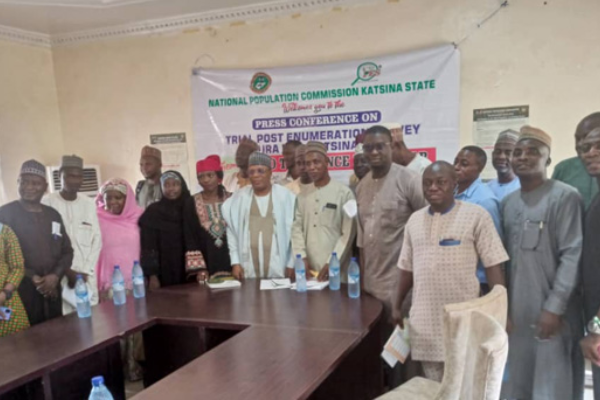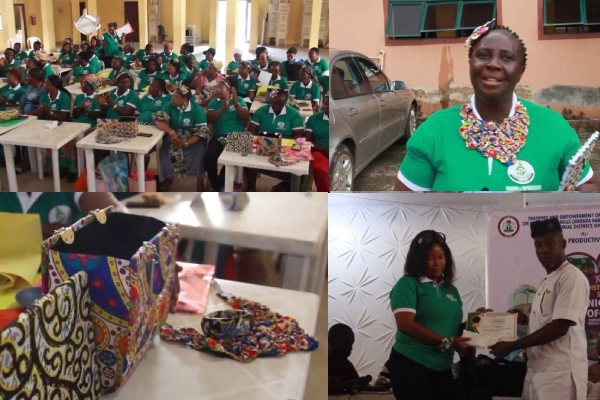The National Population Commission (NPC) has commenced its post-enumeration Survey in Daura Local Government Area of Katsina state.
The survey will be conducted across 127 Enumeration Areas in the six geopolitical zones, of which 15 Enumeration Areas will be covered during the survey in Daura, according to Bala Almu Banye, the NPC Federal Commissioner responsible for Katsina.
Banye announced at a press conference in Daura that the exercise with the theme “Zero Tolerance For Error” will take place on Saturday, November 22nd, 2022 and will be completed on November 2nd, 2022.
[wonderplugin_video iframe=”https://youtu.be/idPG8NoaeX8″ lightbox=0 lightboxsize=1 lightboxwidth=960 lightboxheight=540 autoopen=0 autoopendelay=0 autoclose=0 lightboxtitle=”” lightboxgroup=”” lightboxshownavigation=0 showimage=”” lightboxoptions=”” videowidth=600 videoheight=400 keepaspectratio=1 autoplay=0 loop=0 videocss=”position:relative;display:block;background-color:#000;overflow:hidden;max-width:100%;margin:0 auto;” playbutton=”https://www.tvcnews.tv/wp-content/plugins/wonderplugin-video-embed/engine/playvideo-64-64-0.png”]
He went on to describe the Trial PES as an important part of the preparations for a successful and fully digital census, which is set to take place in April 2023.
The Post Enumeration Survey (PES), he said, is a statistically representative survey that the NPC will use to check the accuracy of the Trial Census conducted in July 2022.
“The PES will allow the Commission to determine how many people were missed, counted twice, included by mistake, or counted in the wrong place.
“The Commission is placing premium importance on this exercise.
“Errors can arise from many sources in the conduct of the Census, especially in field data collection and processing procedures. Census designs can also be a source of error by introducing measurement errors through wrong questionnaires, instructions, training materials, and procedures for data collection.
“The PES, therefore, has been designed to redress these possible errors in the Census process. The results of the comparison are mainly used to measure coverage and content error in the context of the Census.
“This Trial PES exercise is in line with the United Nations Principles and Recommendations for Population and Housing Censuses.
“It gives credibility to the census results and engenders confidence and acceptability of the census by data users,” he added.
Banye also reaffirmed the NPC’s commitment to conducting a credible and reliable Census, the outcome of which will be a planning tool for national development through rigorous planning and the application of international best practices at every stage of the process.
As a result, he urged Nigerians to join the Commission in order to leave Nigeria with demographic data that can be used to navigate the nation’s current challenges.





